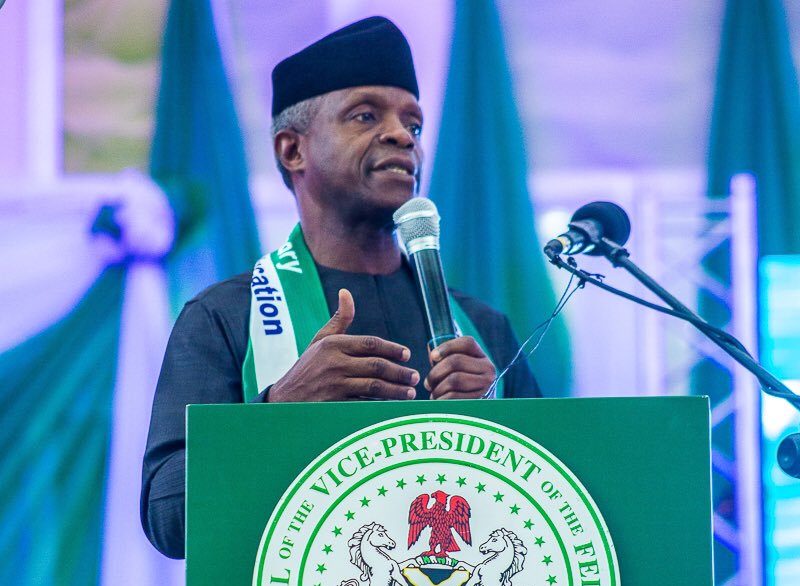As acting president when President Buhari was out of the country on medical issues, Osinbajo wielded power with his firing of Lawal Daura, the then State Security Service boss on August 7, 2018, seen as a move that pitted him against the cabal of the presidency.

If he succeeds in clinching the ticket, Vice President Yemi Osinbajo’s dream of becoming the candidate of the ruling All Progressive Congress (APC) for the 2023 presidential election will put him in a pole position to succeed his principal and become just the second number two citizen elected president since Nigeria’s return to democracy in 1999.

Osinbajo, a law professor and pastor in the Redeemed Christian Church of God, has been one of the poster children of President Muhammadu Buhari’s administration since 2015 oftentimes suffering similar if not more criticism as his principal.
His first major foray into politics dates back to 1999 when the then governor of Lagos State, Asiwaju Bola Ahmed Tinubu, appointed him as a member of his cabinet wherein he served as Attorney-General and Commissioner for Justice from 1999 to 2007.

As Attorney-General of Lagos, he was credited with undertaking far-reaching significant judicial reforms in the state, addressing critical areas such as judges’ recruitment, remuneration, training and discipline.
He addressed access to justice for the poor by establishing appropriate institutions in the Office of the Public Defender (OPD) and the Citizens Mediation Centre (CMC) thereby repositioning the ministry from a “law and order” agency under the military, to a citizen-focused department of justice.
Before then, he had, between 1988 and 1992, served as an Adviser (Legal Advice and Litigation) to the then Attorney-General of the Federation and Minister of Justice, Prince Bola Ajibola.
He was with the University of Lagos as a lecturer since 1981 before his appointment as an adviser in 1988. Upon completion of his term with Ajibola, he returned to the university and in 1994, he became a professor of Law following which he was appointed Head of Department of Public Law, University of Lagos.
He would later become a Senior Partner at SimmonsCooper Partners, Nigeria (a commercial law practice).
Osinbajo gained national attention in 2015 when he was selected to run as a running mate for then opposition candidate, Muhammadu Buhari on the platform of the APC. The duo won the election and their reelection in 2019.
As acting president when President Buhari was out of the country on medical issues, Osinbajo wielded power with his firing of Lawal Daura, the then State Security Service boss on August 7, 2018, seen as a move that pitted him against the cabal of the presidency.
But after the re-election in 2019, Osinbajo’s power was whittled down following the creation of the Ministry of Humanitarian Affairs, Disaster Management and Social Development.
When he announced his intention to run for the presidency, several individuals suggested that his decision was a betrayal of his erstwhile political mentor, Asiwaju Bola Ahmed Tinubu, who had also entered the race.
Clement A. Oloyede




















